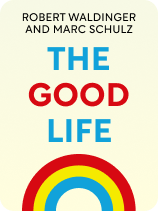

This article is an excerpt from the Shortform book guide to "The Good Life" by Robert Waldinger and Marc Schulz. Shortform has the world's best summaries and analyses of books you should be reading.
Like this article? Sign up for a free trial here.
Are your relationships healthy? Who needs more of your time? Does anyone need to go?
In The Good Life, Robert Waldinger and Marc Schulz provide a methodology for evaluating your “social fitness”—the current health of your relationships. This will give you an idea of who you need to focus on more and who you need to cut from your life.
Find out how to evaluate relationships in your life in order to move forward in a positive direction.
Evaluate Your Relationships
The authors argue that understanding how often you see people now and how those people add to or subtract from your life will motivate you to make any necessary changes to your social life.
Waldinger and Schulz recommend that, to evaluate relationships, you should begin by listing the people who make up your social circle. This likely will include people you love, such as your friends and family, even if you don’t see them as often as you’d like. But it will also likely include people you see regularly but aren’t particularly close to—such as the bartender at your local pub—or even people you actively dislike—such as that in-law you can’t stand.
Next, Waldinger and Schulz suggest that you review both how often you see each person in your life and how each one makes you feel. Does being in this person’s company refresh and uplift you, or does it drain and depress you? If it’s the latter, is there any particular reason why, and is there something you can do about it? Are you happy with how often you see each person, or would you like to see more or less of them?
Third, Waldinger and Schulz suggest that you review the specific benefits you receive from each relationship. Some people provide love and sex, while others provide assistance when you’re struggling—such as when you don’t know what job to take. Some people help you feel safe, while others push you outside your comfort zone. There are some people you can talk about anything with and others you can rely on because they’re so familiar to you. Keep in mind that some people will provide multiple benefits, but several of them won’t provide all of them.
| Other Methods for Evaluating Your Social Fitness Other experts agree that evaluating your social fitness is important, explaining that you can only improve your relationships when you have a better understanding of their current state. Like Waldinger and Schulz, they suggest reviewing how often you see each person in your life and how each person makes you feel to ensure that most of your relationships provide you with some support (and that you reciprocate). Additionally, they point out the importance of having relationships that provide varying levels of emotional intimacy and assistance. Unlike Waldinger and Schulz, these experts suggest that you also review how many of the people in your life know each other to determine how well-integrated your connections are. The experts highlight the importance of having people in your life who will tell you the truth no matter what. And they propose that you evaluate whether you have positive relationships with six different types of people: family, friends, colleagues, acquaintances, professionals (like your lawyer or accountant), and people in your community (like your volunteer group). If your social group includes all these elements, you have a network that can help you achieve your fullest potential. |

———End of Preview———
Like what you just read? Read the rest of the world's best book summary and analysis of Robert Waldinger and Marc Schulz's "The Good Life" at Shortform.
Here's what you'll find in our full The Good Life summary:
- That the key to a good life has nothing to do with your career or success
- How to evaluate the current quality of your relationships
- How to improve relationships with your friends, partner, family, and coworkers






